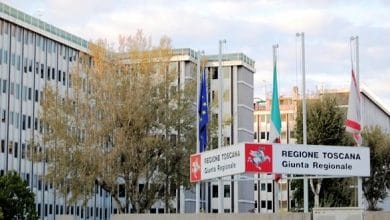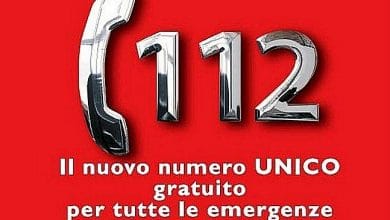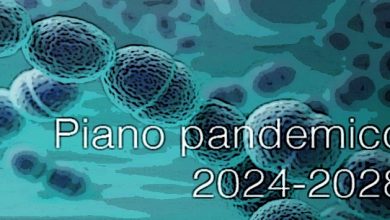
 The Italian College of Primary Hospital Doctors Oncologists has appealed to the Ministry of Health and Aifa to activate the Working Group to re-evaluate the use of available resources for the treatment of cancer patients. This is also in the light of some studies which confirm that very expensive drugs actually lead to "minimal" benefits. The most recent one of Goldestein – just published online in the scientific Journal of Clinical Oncology – which documents for bevacizumab, a drug used above all for metastatic colorectal cancer, an incremental cost/effectiveness ratio (Icer) of over 550,000 dollars for Qualy and insignificant effects on treated patients. Gianpiero Fasola, President of Cipomo, explains to DoctorNews33 the reasons for this request to the institutions.
The Italian College of Primary Hospital Doctors Oncologists has appealed to the Ministry of Health and Aifa to activate the Working Group to re-evaluate the use of available resources for the treatment of cancer patients. This is also in the light of some studies which confirm that very expensive drugs actually lead to "minimal" benefits. The most recent one of Goldestein – just published online in the scientific Journal of Clinical Oncology – which documents for bevacizumab, a drug used above all for metastatic colorectal cancer, an incremental cost/effectiveness ratio (Icer) of over 550,000 dollars for Qualy and insignificant effects on treated patients. Gianpiero Fasola, President of Cipomo, explains to DoctorNews33 the reasons for this request to the institutions.
 Doctor Fasola, why has this state of affairs been maintained, i.e. why do we persist in maintaining high costs for such important medicines?
Doctor Fasola, why has this state of affairs been maintained, i.e. why do we persist in maintaining high costs for such important medicines?
It is a question that would have as many possible answers, but I think the most probable is that the structures appointed to do this work (Aifa in particular) are already very busy managing innovation and, for this reason, do not have the possibility to devote time to review what has already been introduced. I am referring to Aifa in particular. From what I see from the outside, Aifa is struggling to manage all the innovations that arrive and all the complex procedures envisaged for the introduction of new drugs on the market in the right time. A review of the outcome of the application of this program, of the cancer registries and of the data that we oncologists generate every day through the cards, would be needed. I believe that this was also envisaged in the provisions with which the Agency was established and in the legislation with which the risk sharing and reimbursement mechanisms program was launched.
Is there substantially a large disproportion between the benefits of some drugs and their costs?
This is a theme present in the international literature, each drug is placed in a certain historical context but, fortunately, the research goes on and year after year the data accumulates. The culture and sensitivity of professionals, institutions, patient associations and the media is also rapidly changing. Today we are all more aware that using resources inappropriately prevents us from having good health; and it is not a good policy means that a National Health Service cannot implement and manage innovation in the best possible way.
How long have you been raising this issue at an institutional level?
Cipomo has this attention in its corporate name, we are an association of professionals which, bringing together the managers of complex operational structures of the new corporate system established in the 90s, has always had as a priority the problems of organization and management of medical oncology- hospital. In this precise case it was a bit difficult to ignore the strength of that data, both for the type of pathology (colon-rectum cancer is one of the most common), and because bevacizumab is one of the most used drugs, and lastly because the Journal of Clinical Oncology is one of the most accredited journals. It will be necessary to verify whether and how the published data are applicable in our country. For now, both the Ministry and Aifa have responded in real time. I want to say that, beyond the US research, already in this year's CIPOMO Congresses, we focus attention on the value of innovation and on the appropriate allocation of resources.
Do we still have to go a long way?
Our SSN is the only Italian public service that is able to compete with the services of other Western countries. We do not have another example of public service in Italy which, net of all the difficulties, when evaluated by external subjects, and it has already happened with the OECD, WHO and Bloomberg, offers excellent results in the relationship between how much we spend and the results measurable by the international community . Surprising data that require us to defend this heritage.
Rossella Gemma – Tuesday, 10 March 2015 – Doctor33
Pani, Aifa ready for insights on anti-cancer drugs
The general manager responds to the appeal launched by Cipomo in recent days
The director general of the Italian Medicines Agency (Aifa), Luca Pani, welcomes the appeal launched in recent days by the College of leading oncologists (Cipomo) on the need to re-evaluate the sustainability and efficacy of the high-cost medicines used in the treatment of tumor pathologies. “Aifa and the Ministry of Health – says Pani – have already expressed their willingness to analyze and investigate the problems highlighted by Cipomo. The sustainability of the system, hand-in-hand with true pharmaceutical innovation and the arrival of increasingly complex and high-cost molecules, is one of the issues closest to the agency's heart”, he underlines. “The continuous re-evaluation of the risk-benefit and benefit-price profiles of medicines is one of the fundamental tools – concludes Pani – to guarantee an adequate allocation of resources in the presence of optimal clinical benefits, as indicated by the scientific community and by the most advanced regulatory science. The measurement and enhancement of innovation are, especially in this historical moment, the real challenge of the future that AIFA has already accepted with the publication of the algorithms and other tools already appreciated on the international scene, such as the monitoring registers of drugs and conditional reimbursement mechanisms”.
AM – 10/03/2015 – PharmaKronos
Related news: The inappropriateness is not the fault of the patients





